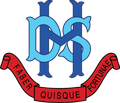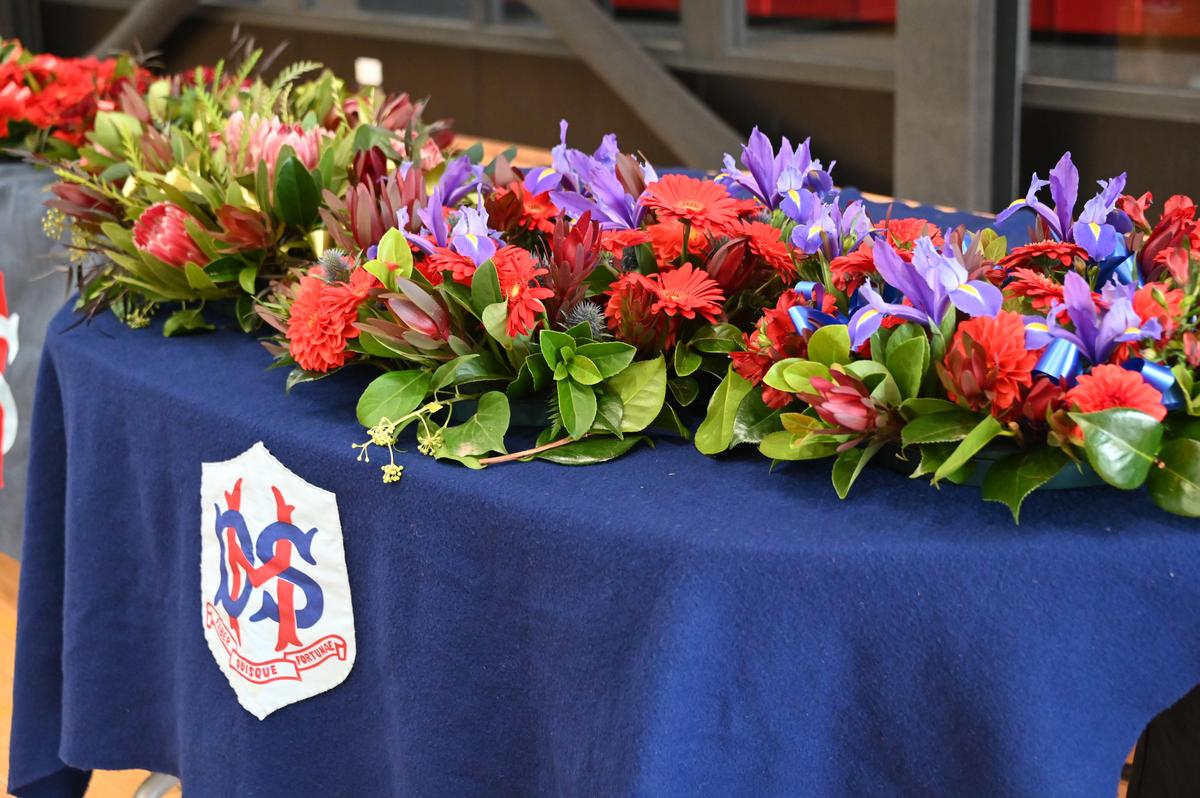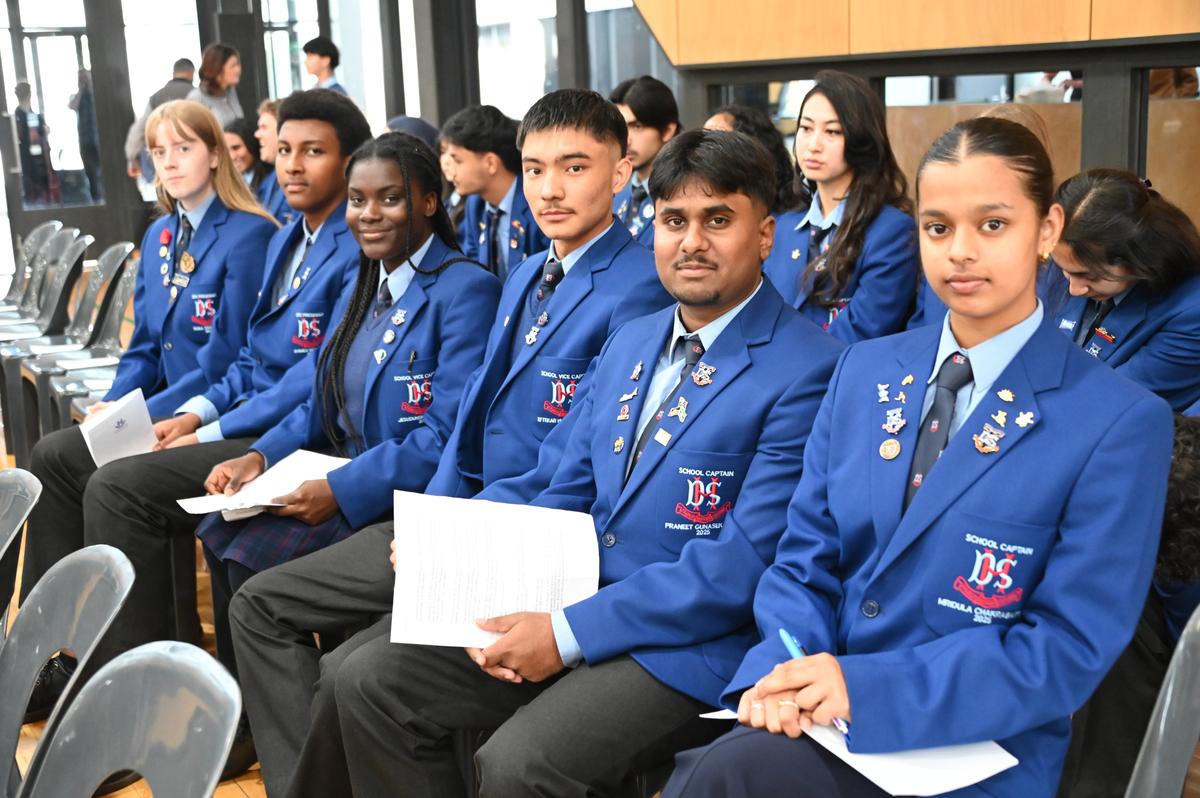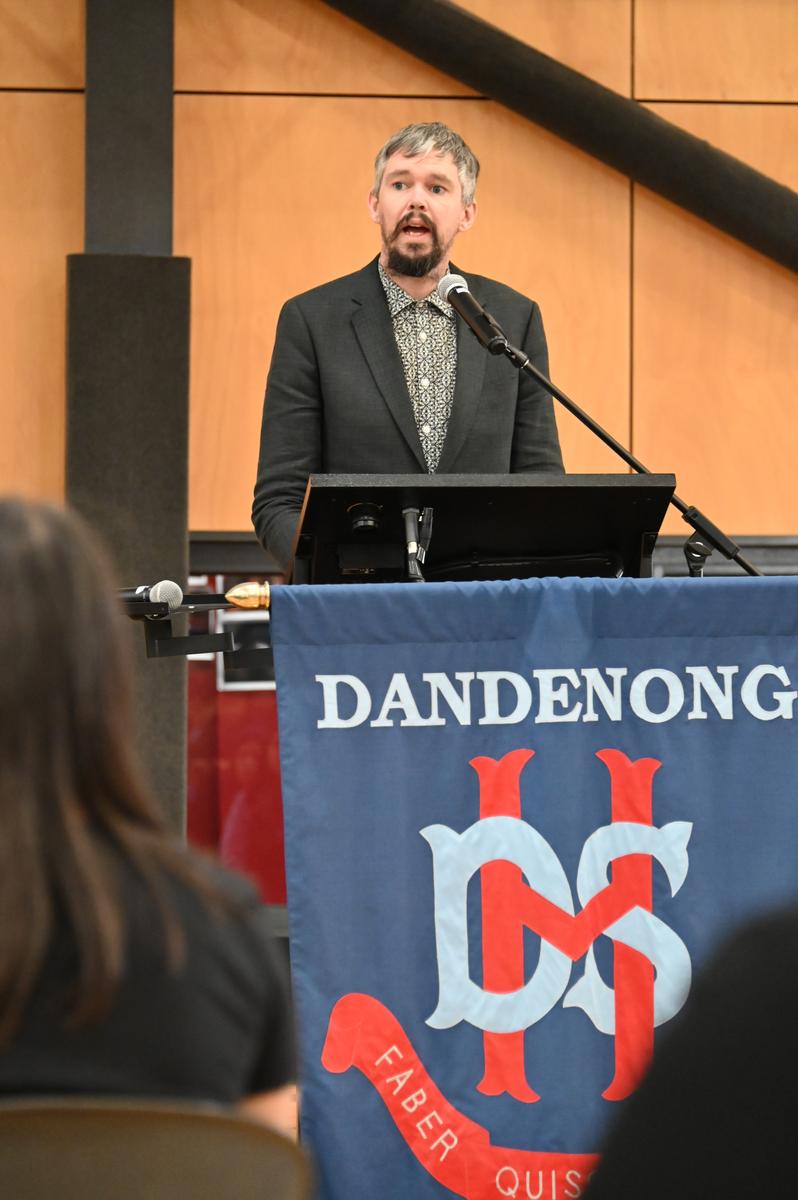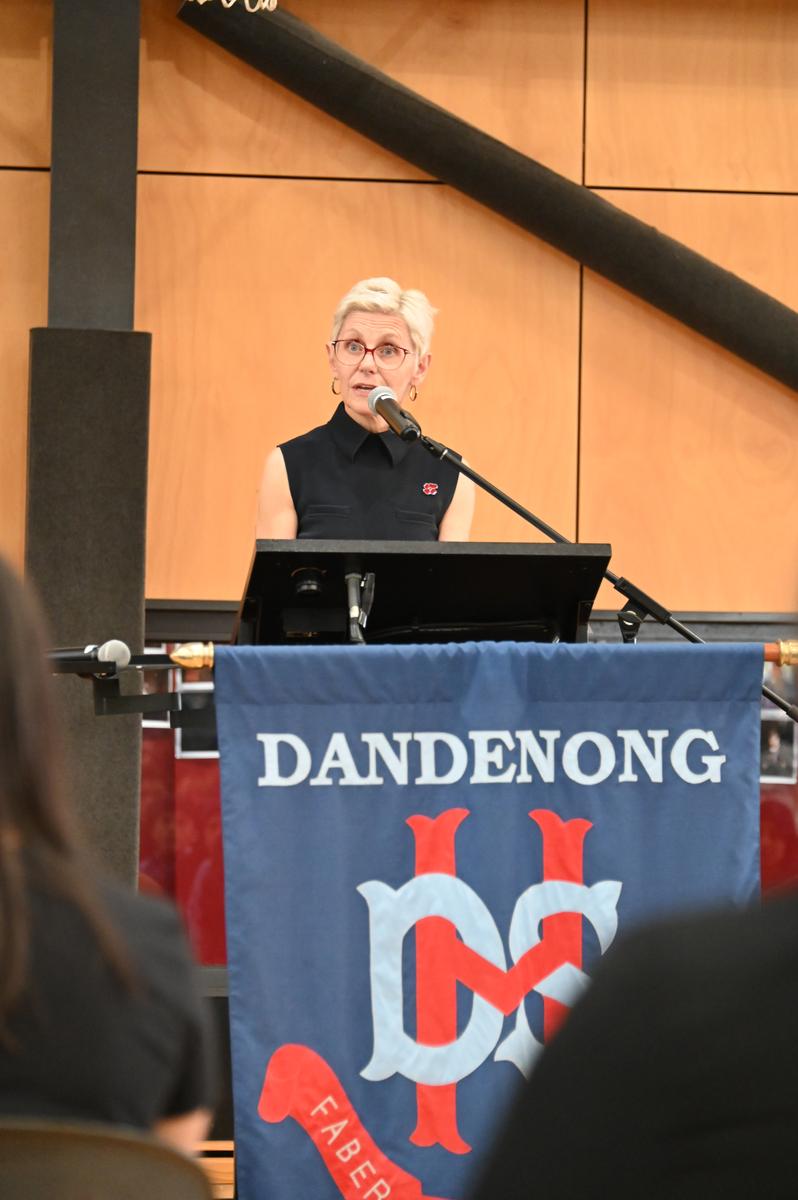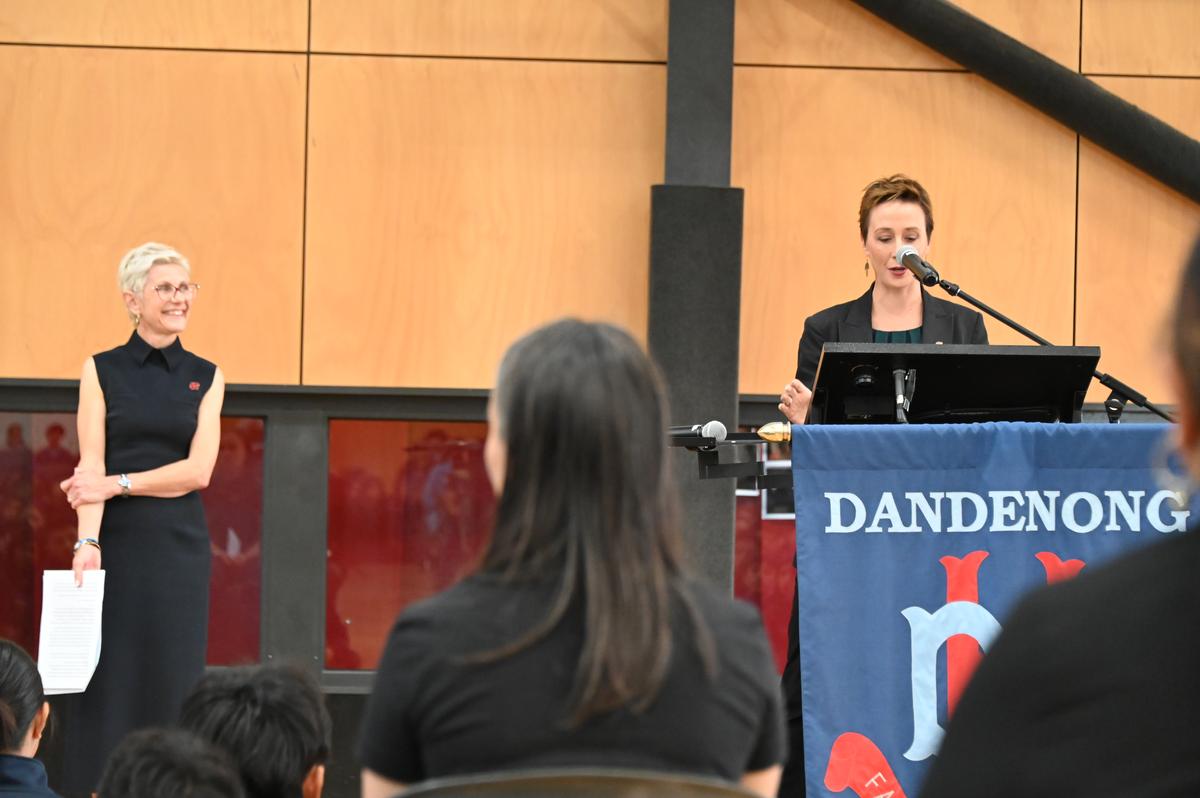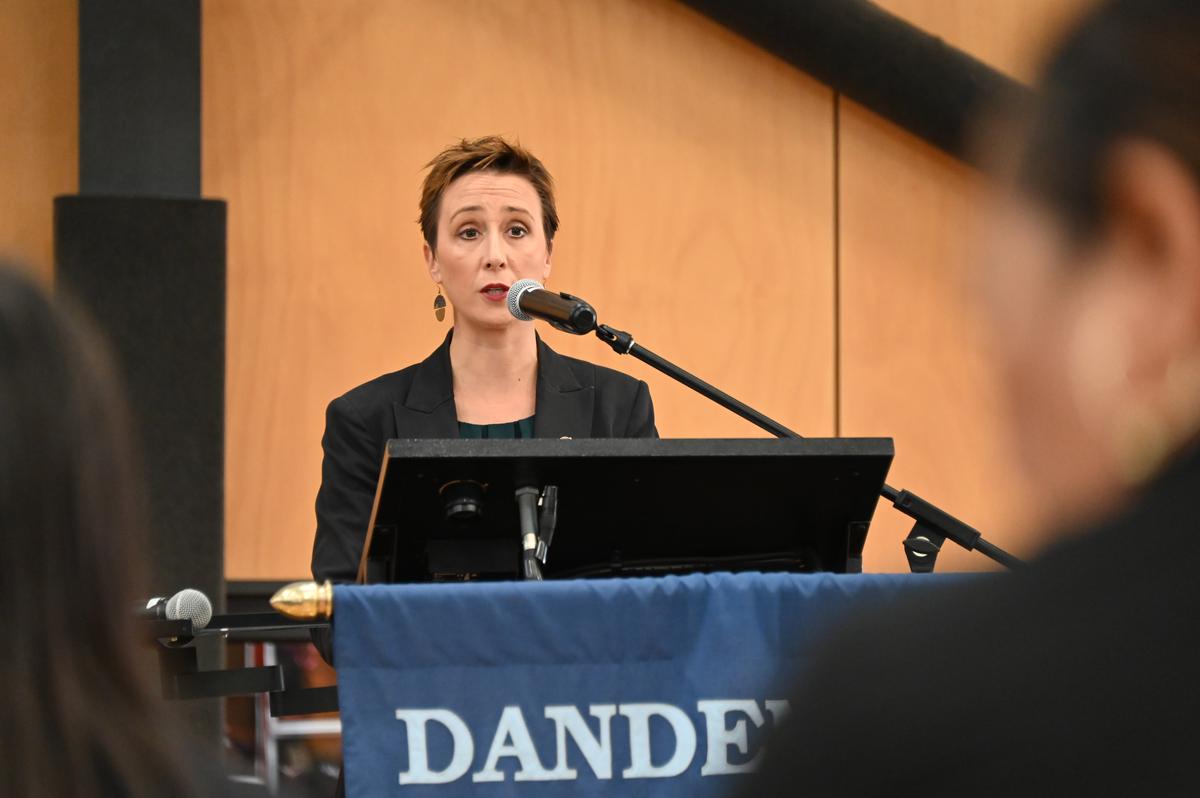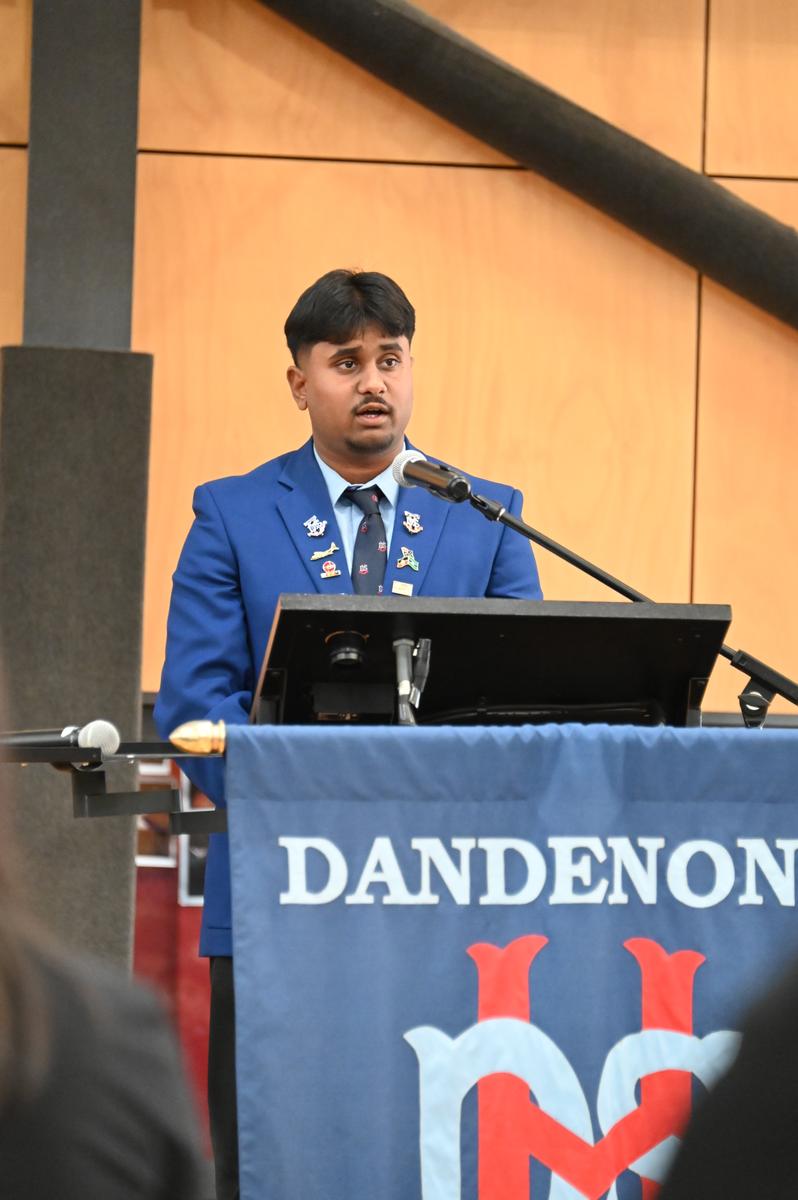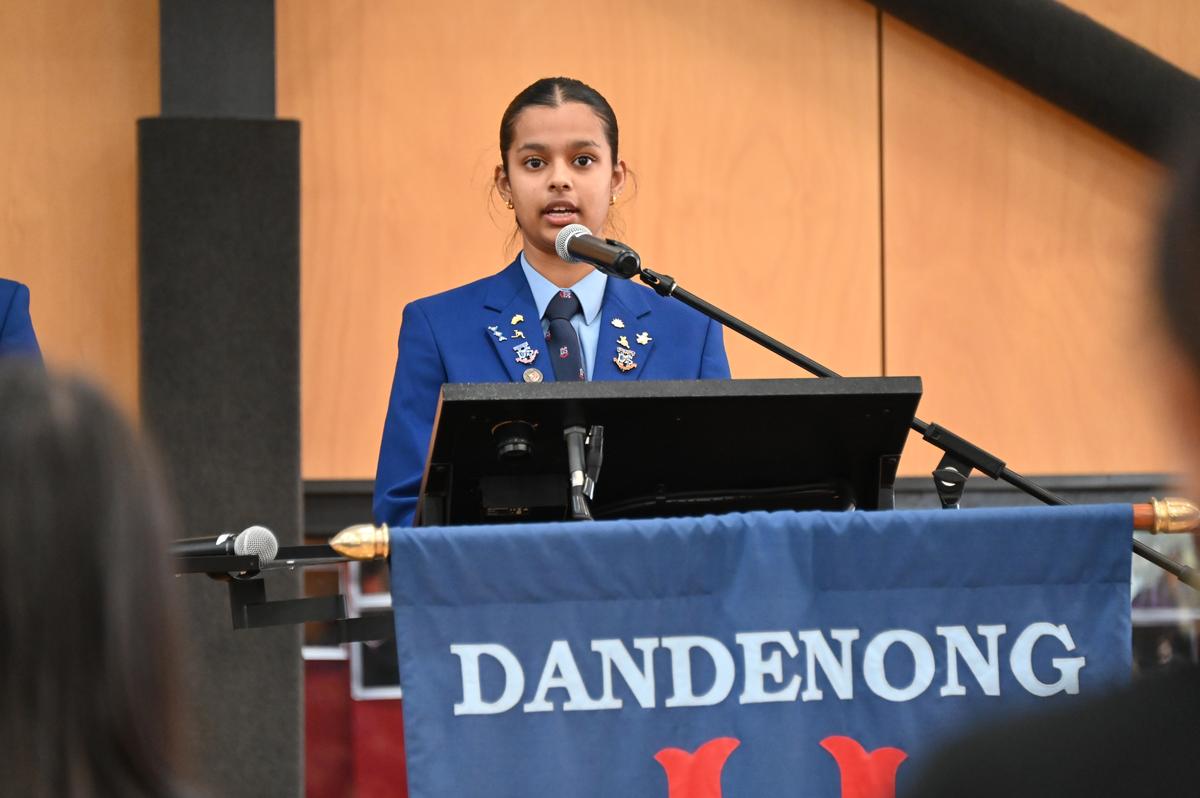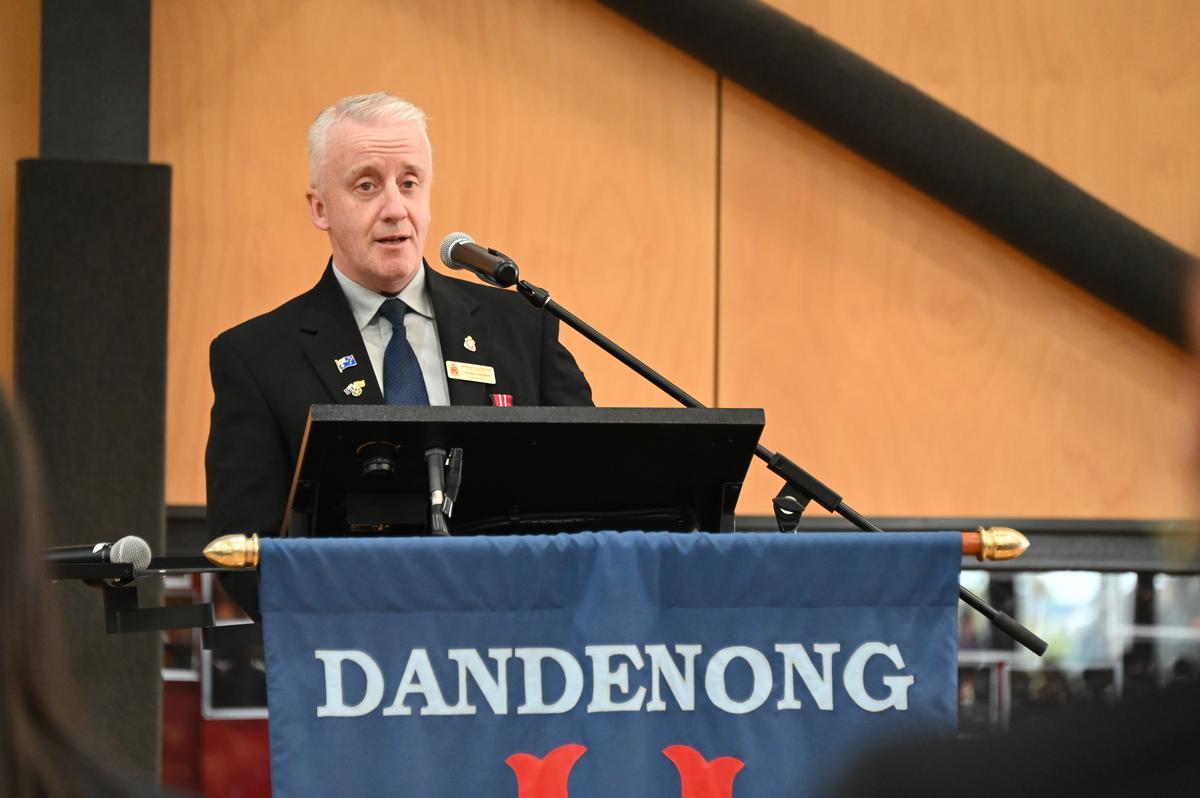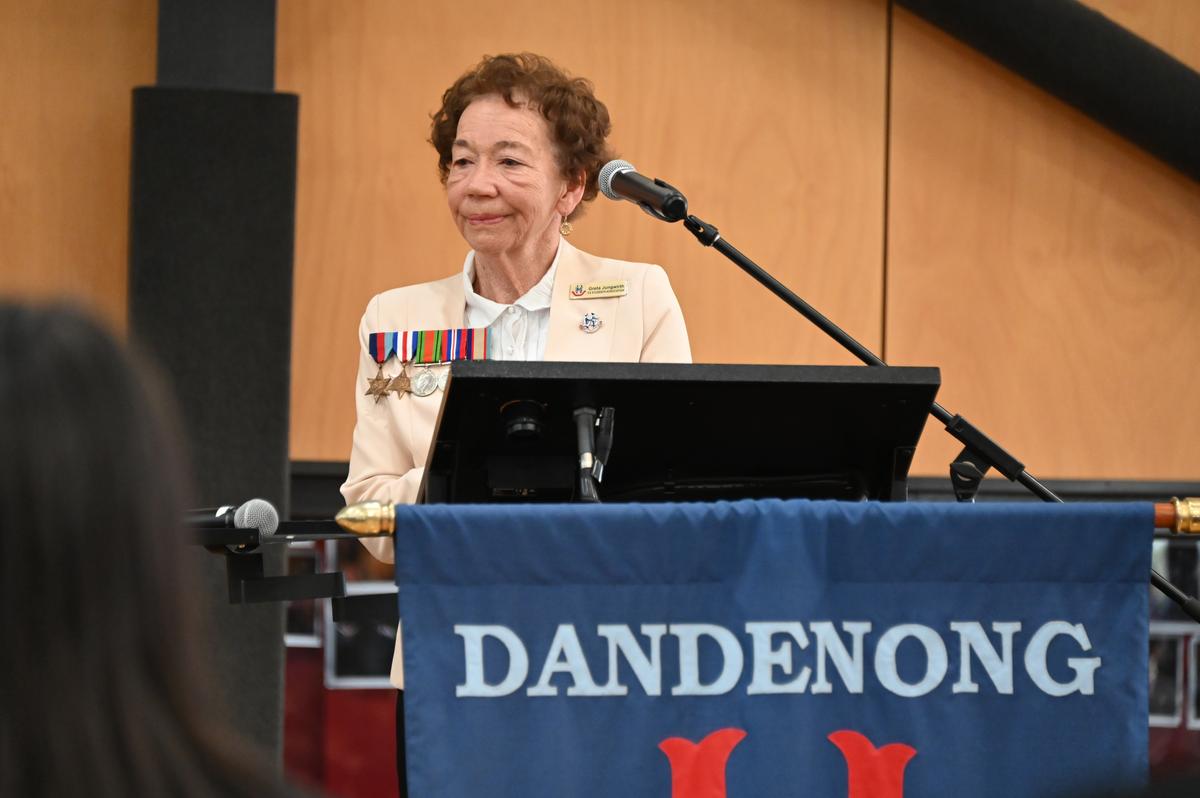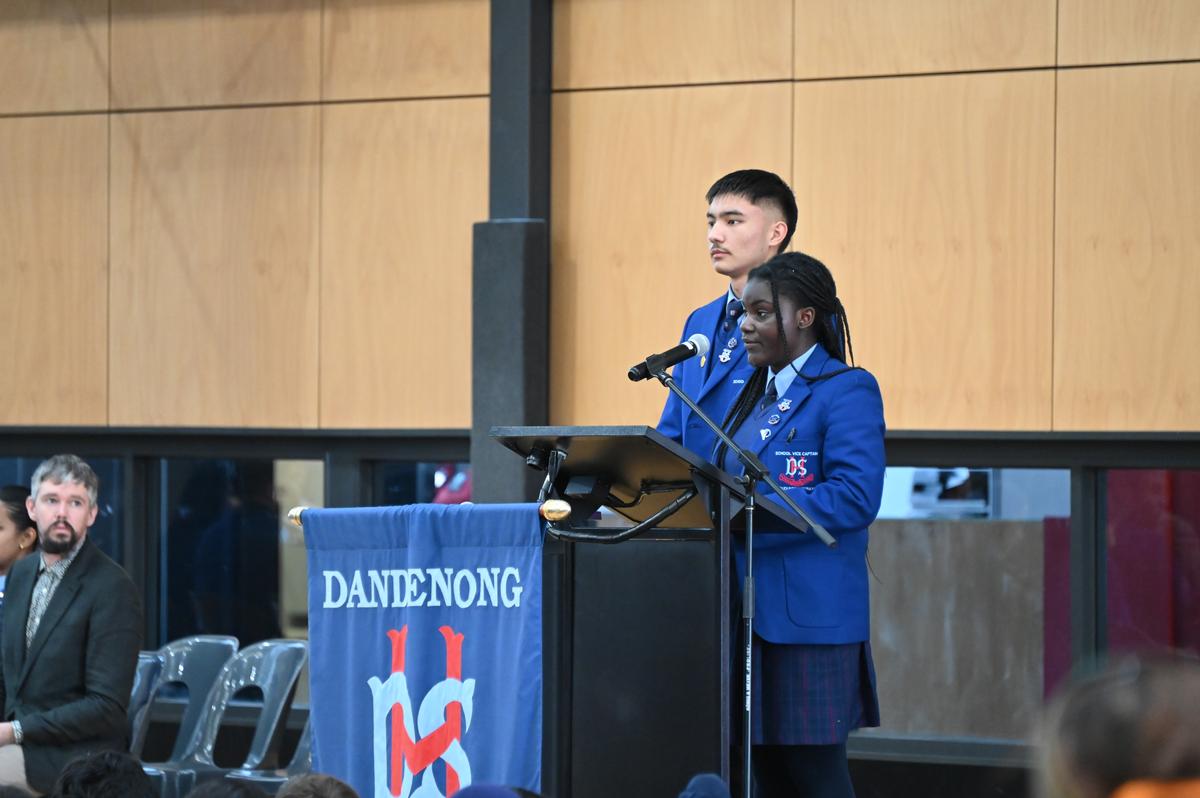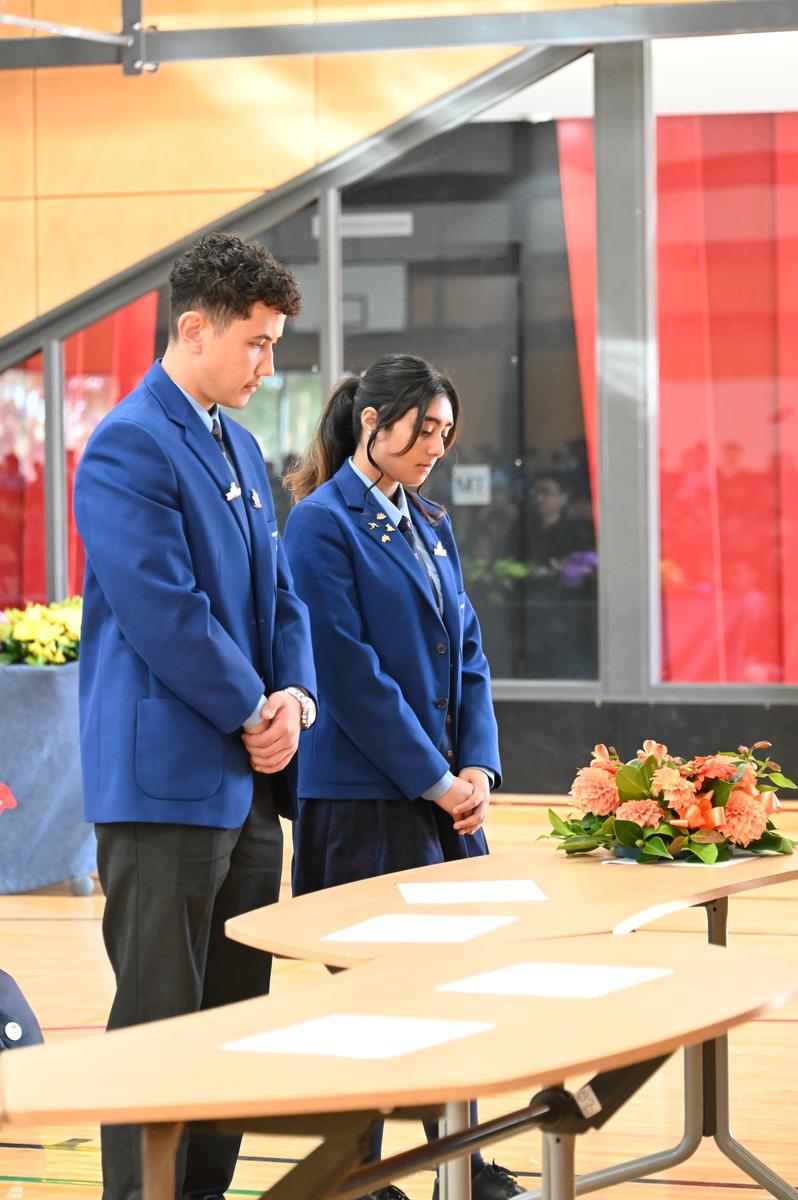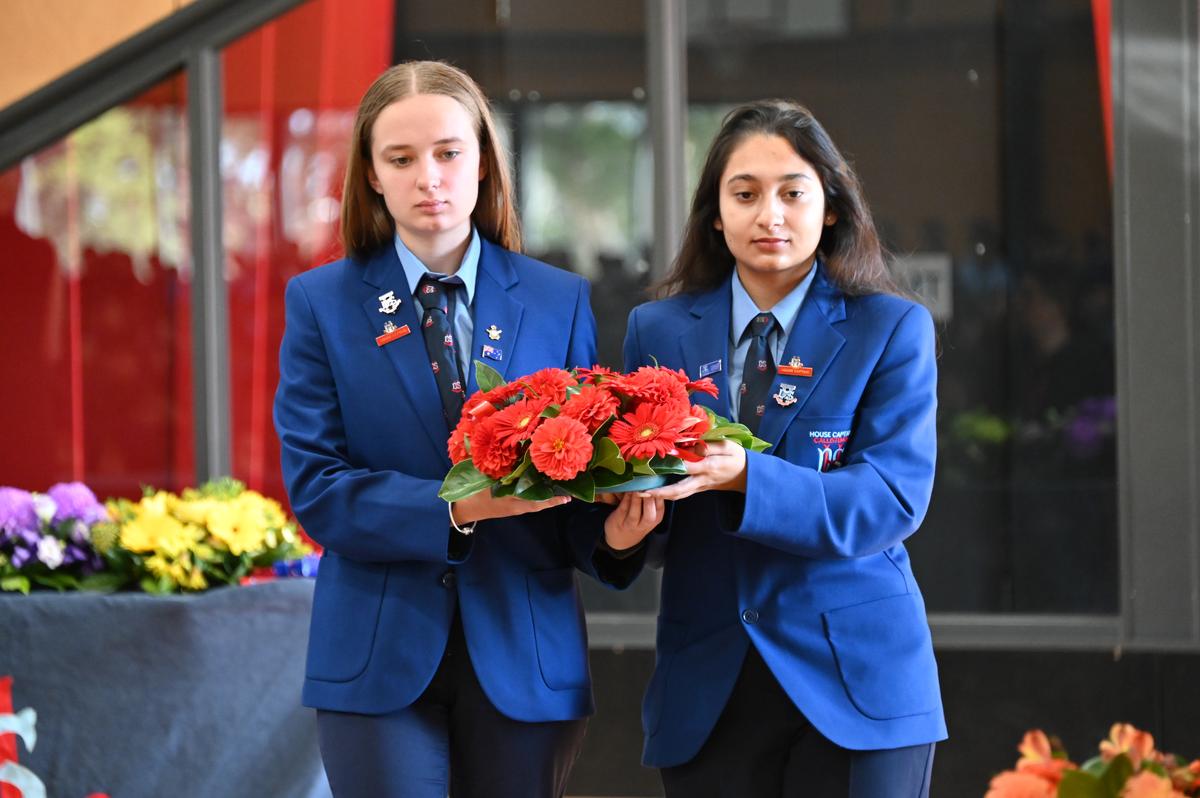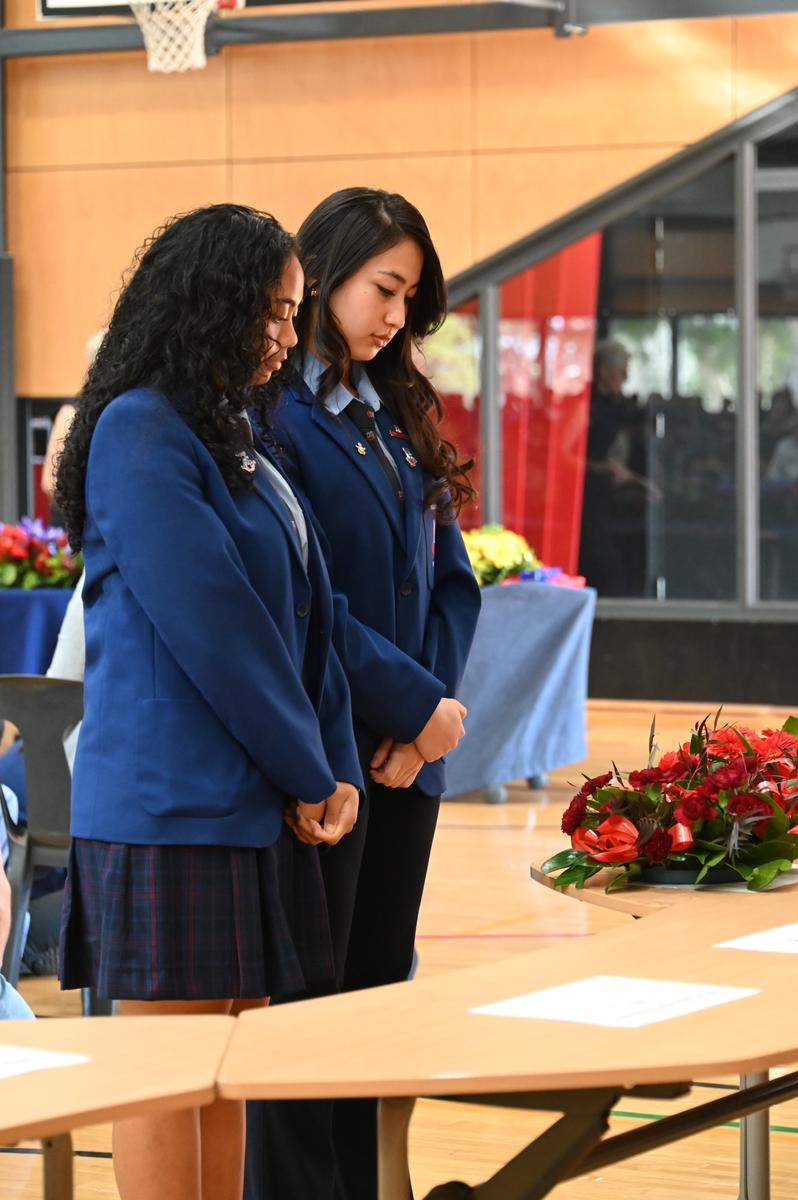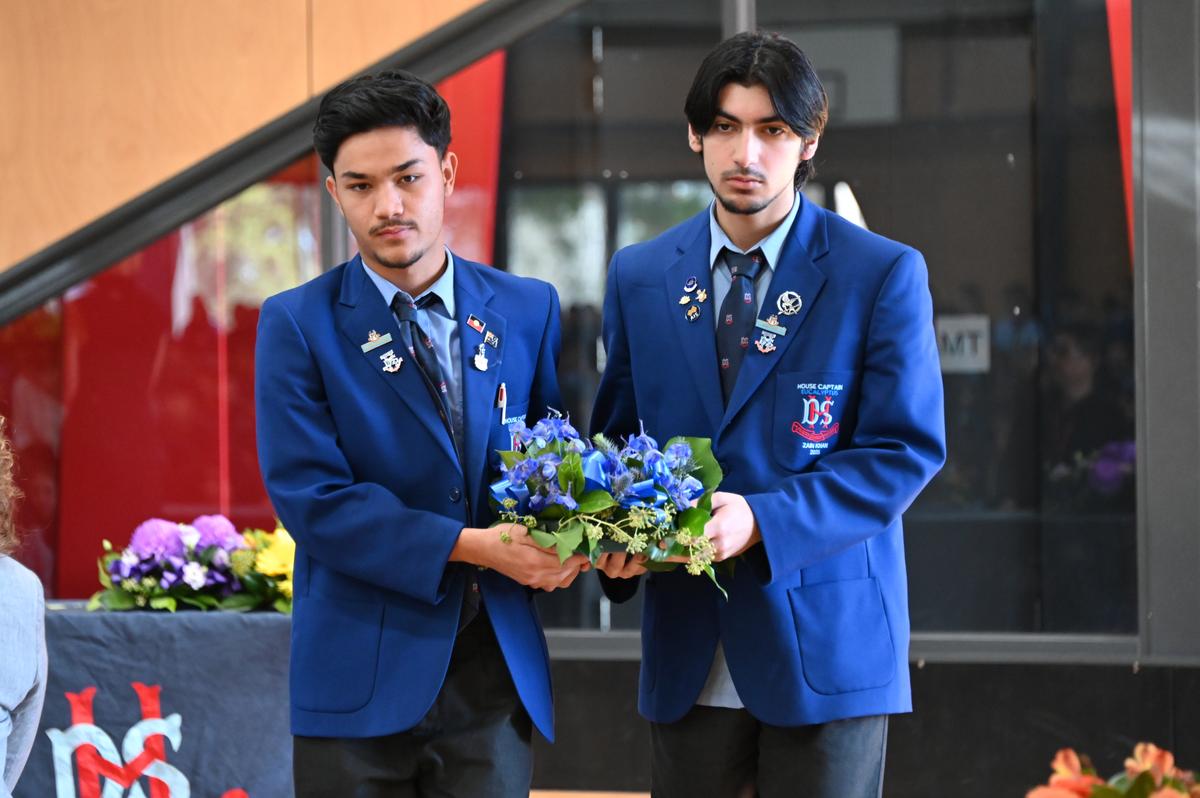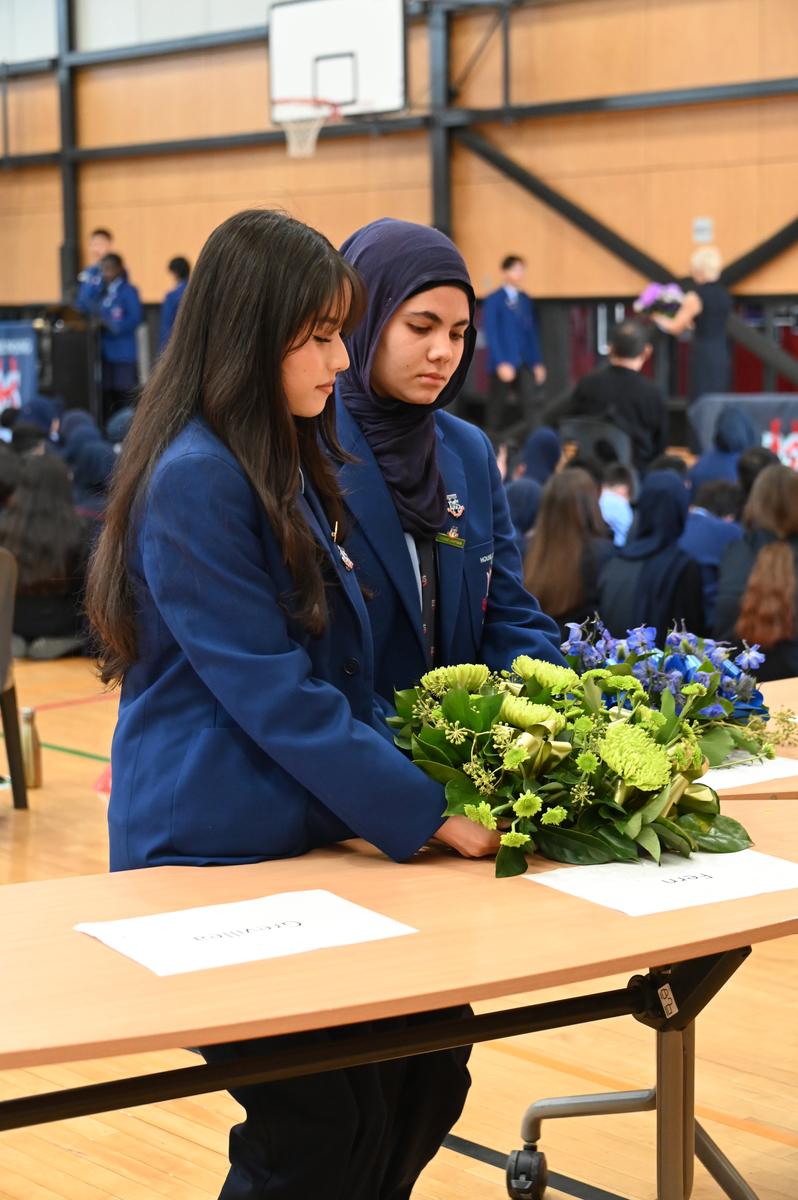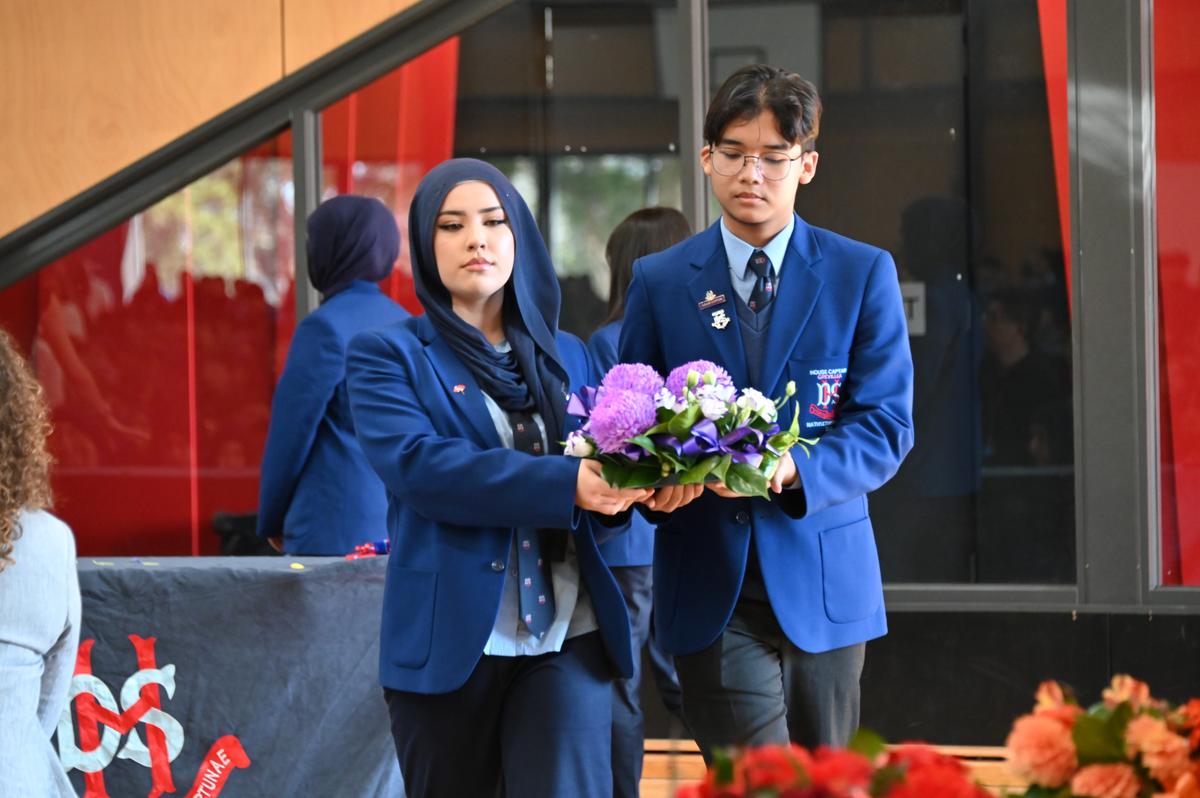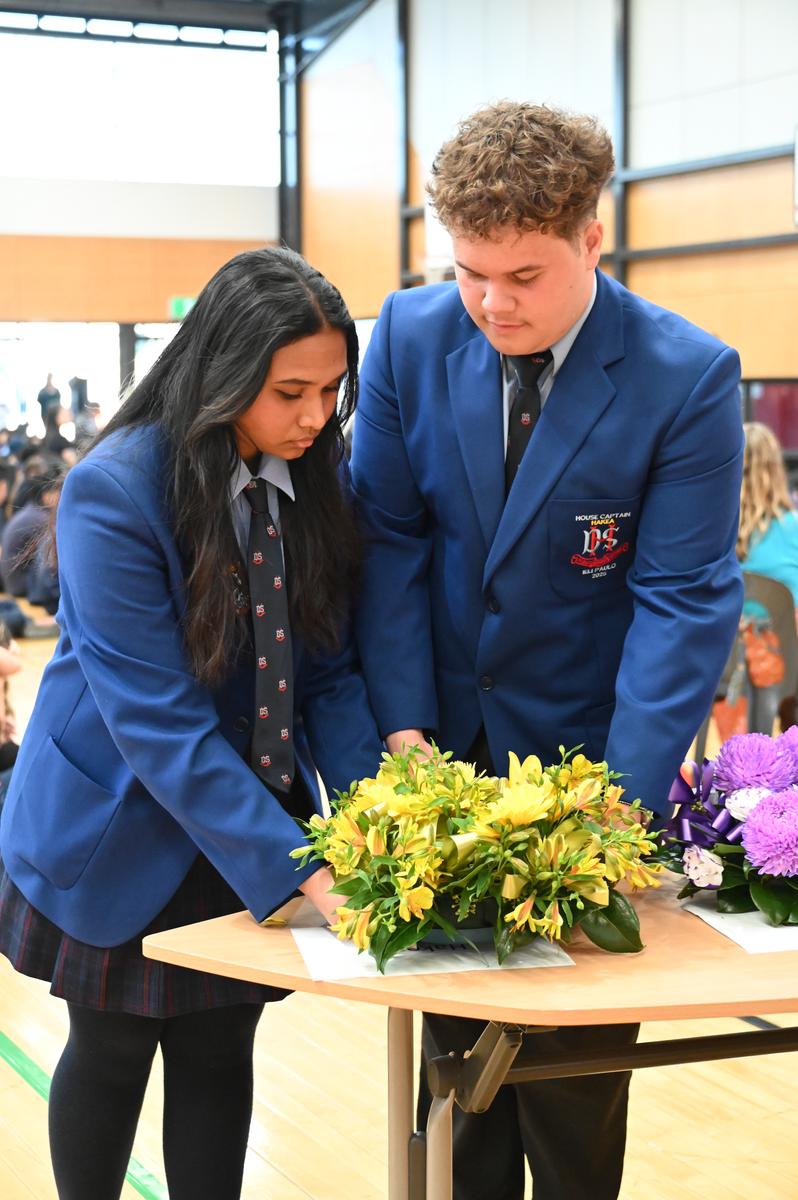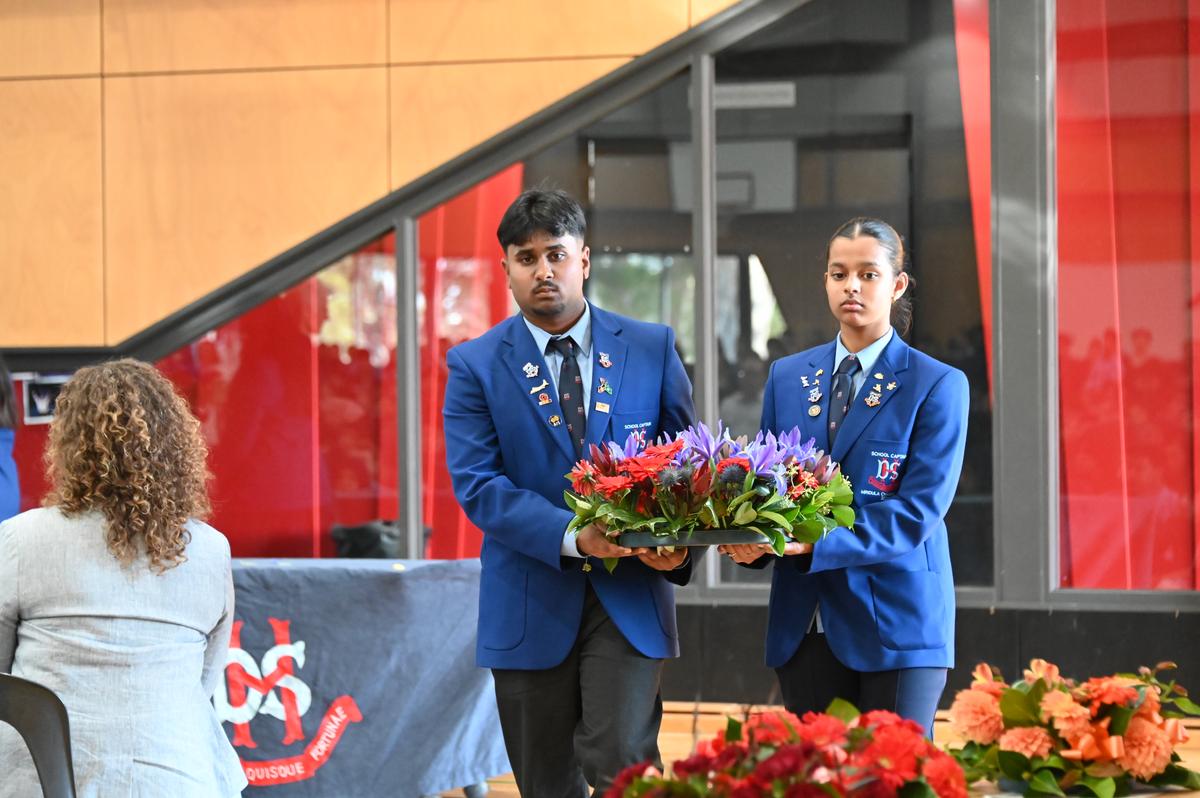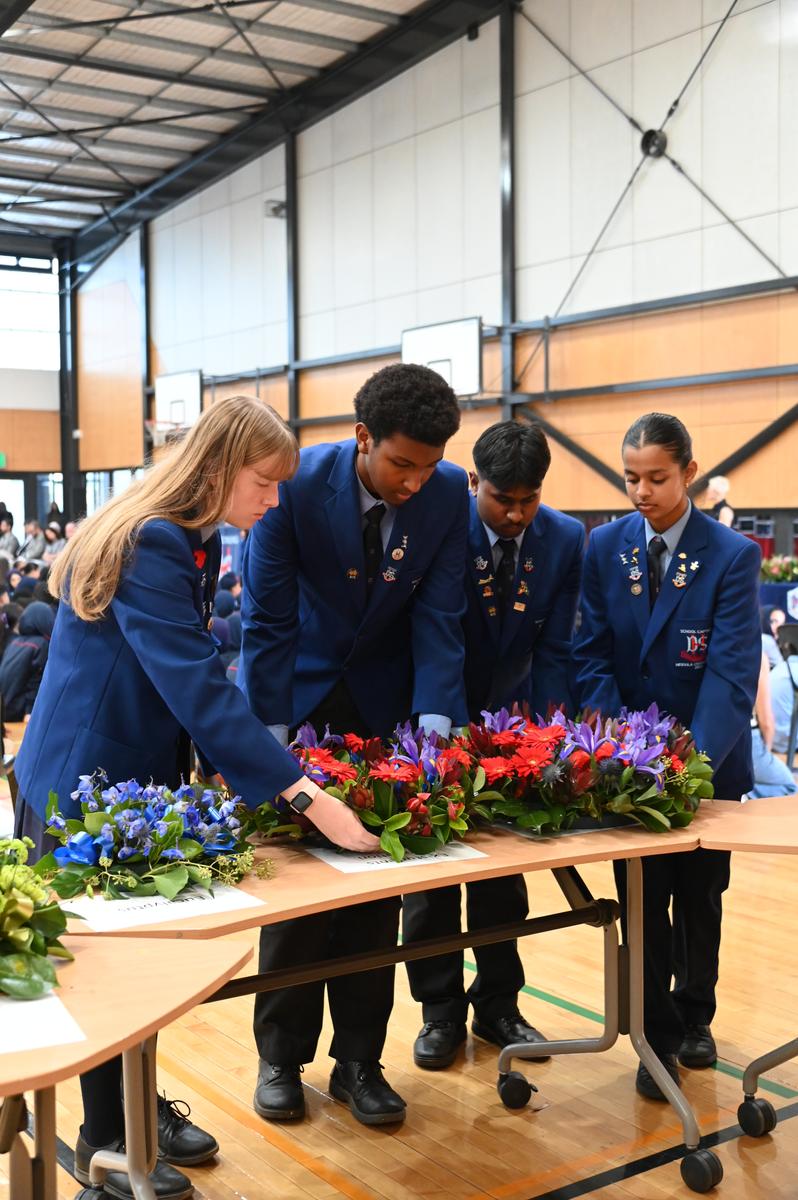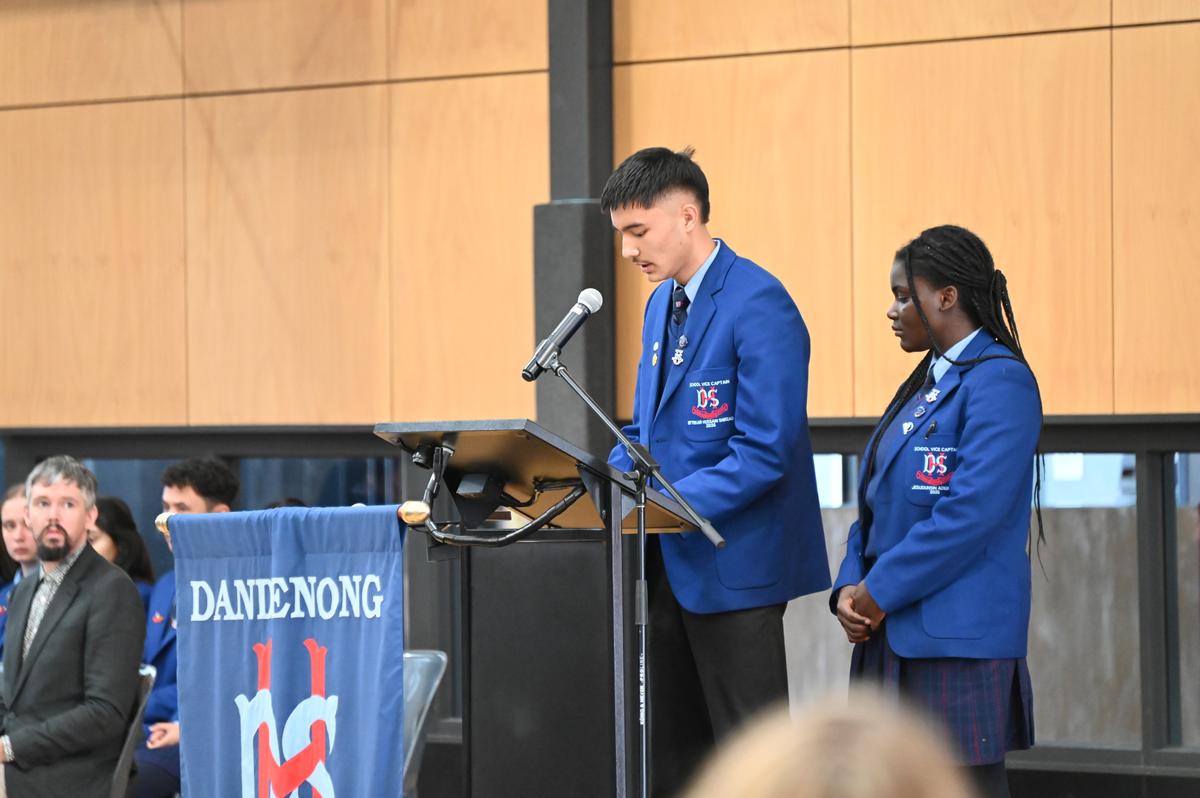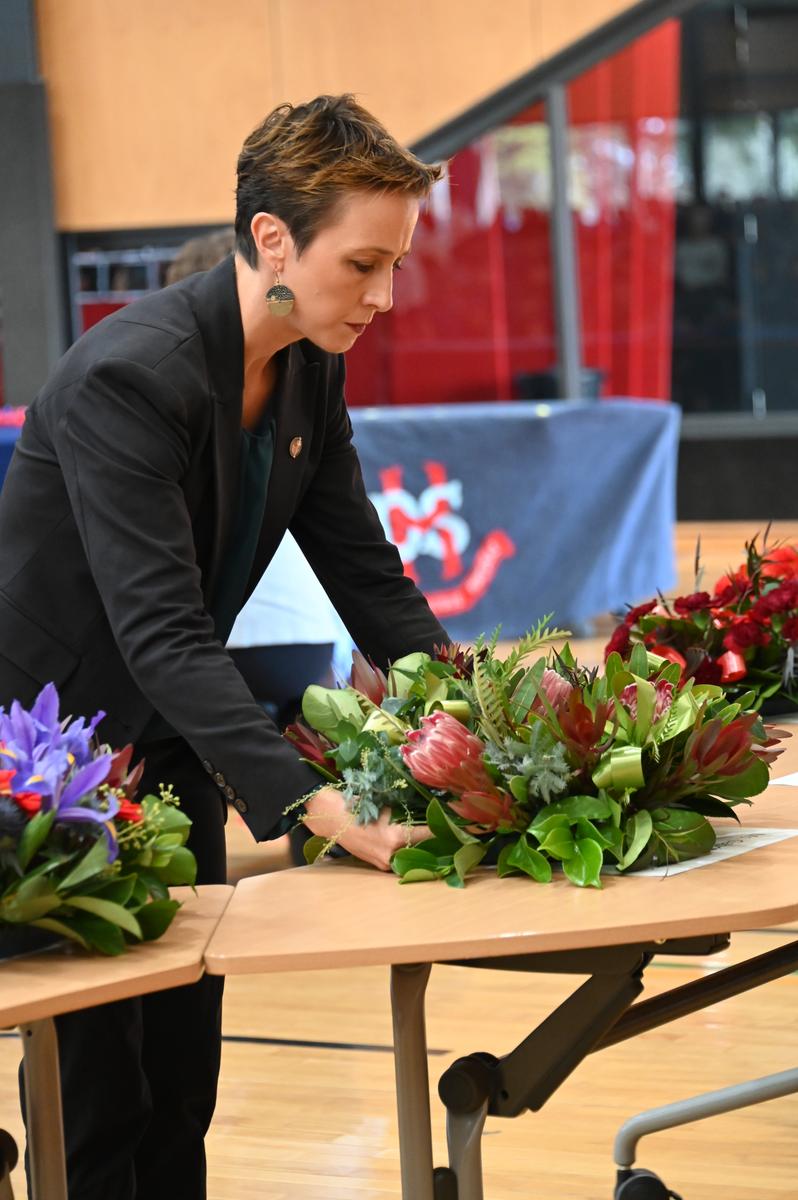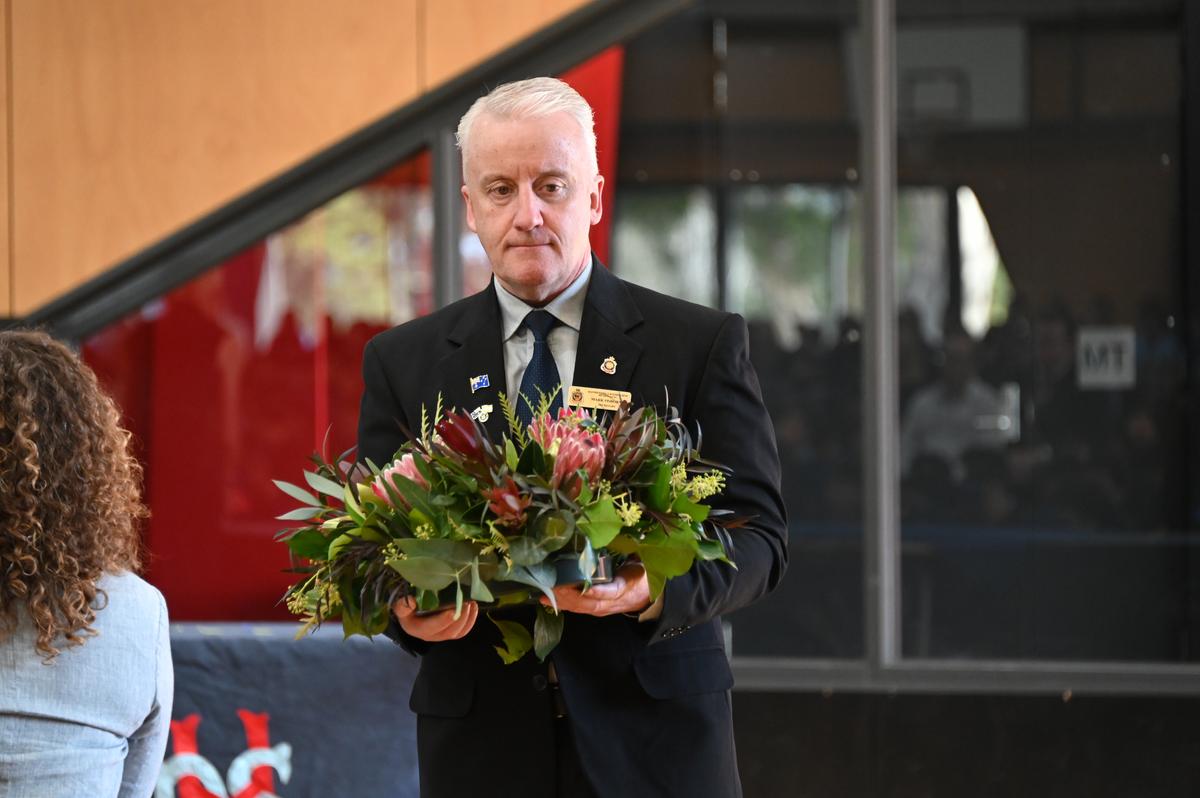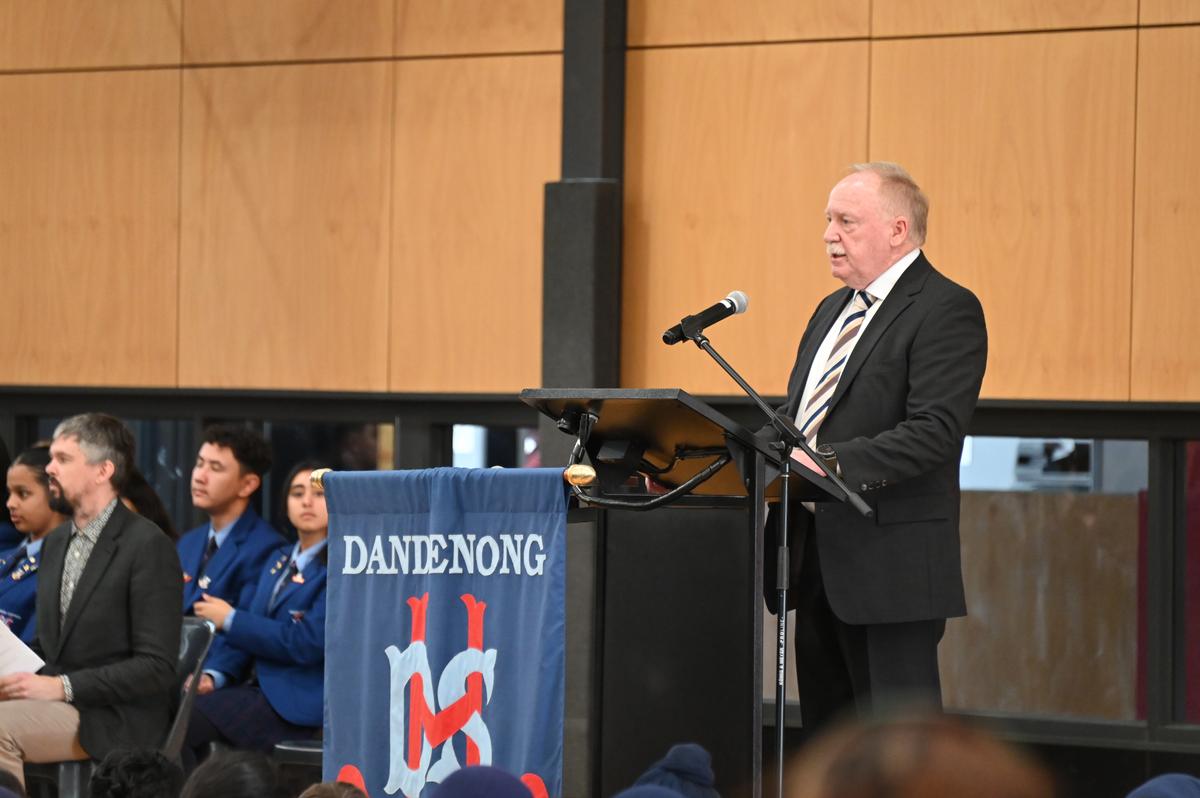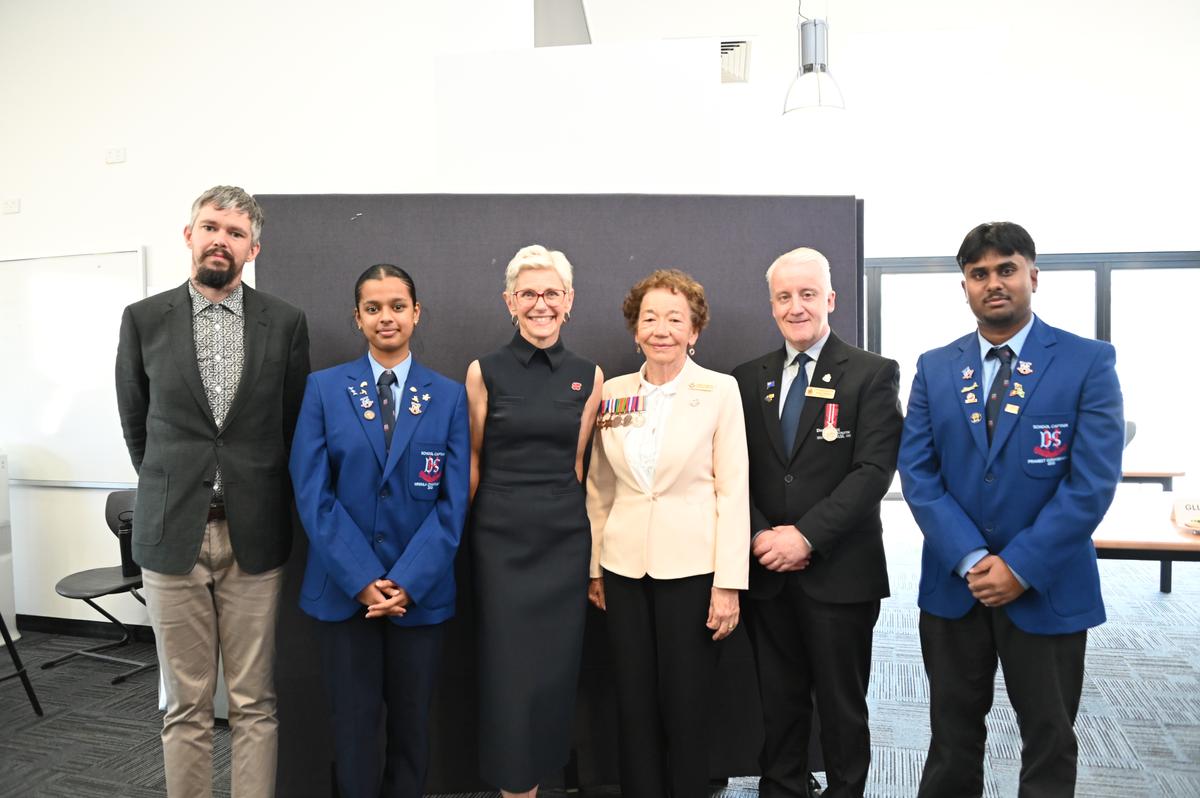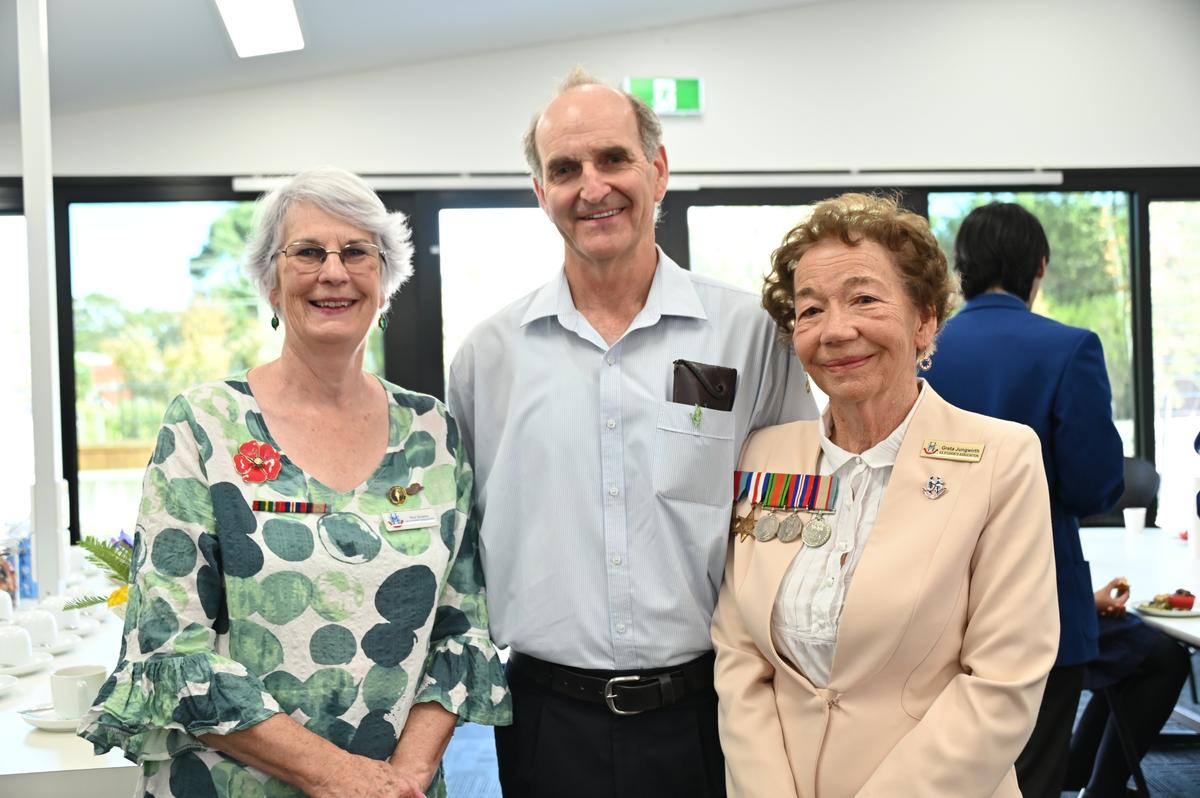ANZAC Assembly

School Captain Speeches
Good morning students, staff and guests. Today, we come together not just to remember, but to also reflect.
Anzac Day is a time when we pause to honour the brave men and women who served and continue to serve our country. But more than that, it’s a time to think deeply about the values they stood for: courage, resilience, and comradery.
For us, as young people, why does this day matter? Because the peace, freedom, and opportunities we have today weren’t guaranteed.
They were earned through sacrifice, through bravery, and through the commitment of those who came before us. The life we get to live, our education, our health, our lifestyle. These are possible because others gave up their own.
One story that I would like to recount that reflects the values I mentioned is of Private John William Alexander Jackson. Born in 1897, he enlisted in the army in 1915, when he was just 17 years old. Think about that for a moment. Seventeen.
That’s the age of many of our Year 11 and Year 12 students. Can you imagine leaving your family, your friends, your entire world, to fight a war on the other side of the planet?
Could we make a decision like that?
Would we have that kind of courage?
Jackson fought at Gallipoli and later in France. At just 18, he volunteered to be part of a dangerous raid on enemy trenches to capture and interrogate. During the raid, a shell shot by the enemy hit Jackson’s right arm and shattered it severely. But even under withering machine-gun fire, he returned time and again to rescue wounded mates, while he himself was in pain.
He could have stayed in shelter and had his arm amputated earlier and rested, but no, he showed courage and resilience repeatedly risking his life saving wounded soldiers with determination. He didn't HAVE to do any of that, BUT he CHOSE to.
How many of us could show that kind of strength?
That kind of resilience?
For his actions, Jackson became the youngest Australian to be awarded the Victoria Cross during World War I, the highest honour for bravery in the face of the enemy.
And yet, he wasn’t a general. He wasn’t a commander. He was just a teenager. Just like us. No rank, no title, just someone who chose to step up when it mattered most.
So why do we tell these stories?
Because they remind us that being young doesn’t mean we can’t make a difference. It doesn’t take a uniform or a medal to show courage. It takes heart. It takes determination. And it takes the willingness to stand by others, our mates, our family, our community, no matter what.
As we stand here today, we are not only remembering the past, we are learning from it. We are being asked to carry forward the values of the Anzacs in our everyday lives: to be brave in the face of challenges, to support one another, and to appreciate the freedoms we sometimes forget to be thankful for.
Thank you.
Praneet G
School Captain
Today, we gather not just to remember the 103,000+ names of those who lost their lives, but to honour every person who served, and continues to serve our country in times of conflict. People who showed courage, sacrifice, and strength, no matter their role. And when we think about that, we’re reminded that war doesn’t recognise status. It doesn’t care about rank, medals, or position. In the end, every person who served stood side by side. Equal. And every one of them deserves that same respect.
This idea of equality, of shared humanity, is the heart of why we’re here today. Because we’re not just honouring the past, we’re holding onto the values that came from it. That every person matters. That even the smallest act of service, kindness, or courage, can carry a lasting impact. That you don’t have to do something loud or bold to change someone’s life. Sometimes it’s the quiet, consistent efforts that leave the biggest mark.
That’s something Vera Deakin showed us. At just 23 years old, she joined the Red Cross and created the Wounded and Missing Enquiry Bureau. She wasn’t on the battlefield, but she fought in her own way, by helping thousands of families find answers. Writing letters. Searching for names. Bringing some kind of peace to those left waiting in fear.
She was told she shouldn’t be doing that job, that it was too much for a woman, and people tried to replace her. But she stayed, not just because of her own resilience, but because others supported her. Because people saw her work and stood up for it. Vera showed that you don’t need a uniform to serve, and that strength comes in many forms. Her story reminds us that bravery, compassion, and respect are not limited by gender, role, or recognition.
The Tomb of the Unknown Soldier reminds us of that too. It holds no name, but it holds deep meaning. It stands for all those who never returned home, and it gives space for the grief of families who had no graves to visit. More than anything, it gives hope. Hope that we should remember, even when there are no names left to say out loud.
One thing we took away as Student Leaders after visiting the War Memorial is that being a leader doesn’t always mean being the loudest voice or the one in front. Sometimes leadership means knowing when to step back, when to listen, or when to do something differently. Sometimes a quiet change is the most powerful thing you can offer. And that kind of leadership, rooted in humility, kindness, and respect, is exactly what ANZAC Day teaches us to value.
So as we stand together this morning, we reflect with sadness, but also with deep gratitude. We honour those who served, those who sacrificed, and those who still stand in uniform today. And we remember that no matter how big or small your role, every action counts. Every person matters. And we are all equal.
Thank you.
Mridula C
School Captain
